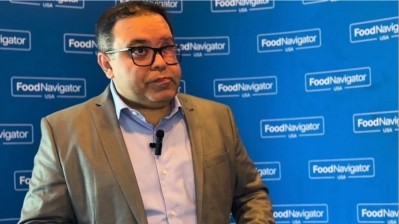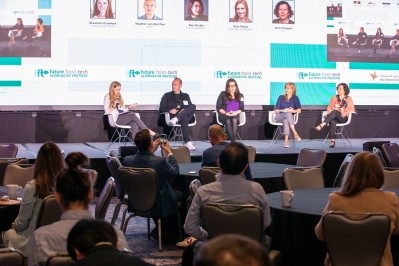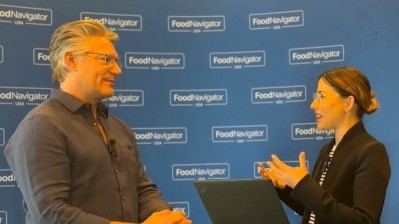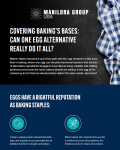Future Food Tech Alternative Proteins
Hydrosome Labs’ ultra-fine bubbles boost precision fermentation production, open doors for beverages to better deliver functional ingredients, nutrition
“The demand for fermentation is massive, and really only probably 30% is being satisfied. That demand is growing 20%, 30%, 40% year-over-year,” and the alternative protein segment will not be able to keep up with that demand unless it partners with companies like Hydrosome, which can help increase production within the current infrastructure that is available, said Paul Gadbut, president and CEO of Hydrosome Labs.
“We are a biotechnology company, and we are focused on creating ultra-fine bubbles, which are these very, very small bubbles. For reference, you could fit 100 million of these ultrafine bubbles inside of a champagne bubble. And they have the ability to really move nutrients and gases very effectively into cells," Nick Jackowetz, senior VP principal scientist at Hydrosome Labs, explained at the Future Food Tech Alternative Proteins summit in Chicago last month.
“What this means for a precision fermentation company is that they can achieve their goals more efficiently. So, they can proceed with that fermentation and it can finish about 25% faster. So that is real gains in terms of the energy costs and labor to finish that fermentation. It also means that at the end of the day, that fermentation has a higher biomass, which means more cells are created using the same input of sugar or glucose. So, it is better efficiency, it is less cost,” he added.
While ultra-fine bubbles are not new, using them in precision fermentation is a new application, and according to Gadbut it is an easy plug-and-play solution.
“We are not in the tank business. We are tank agnostic. We do not care what facilities are doing,” he explained. Rather, “what we are typically doing is … stepping in alongside and [bringing] our technology to their platform.
For example, a typical set up would include an alternative protein precision fermentation company running their broth from their tank, through Hydrosome Labs’ tech, and returning it to their tank with the addition of ultra-fine bubbles.
“Our whole business model is built around the idea that we can bring value to a company without adding to their CapEx,” which will save money and the planet by reducing energy costs, Gadbut said.
By helping to lower production costs, Hydrosome Labs can help alternative proteins made via precision fermentation compete at a price point that is the same or closer to that of animal proteins.
Bubbles could help beverages improve nutrition, sensory experience
Hydrosome Labs’ ultra-fine bubbles can also benefit the beverage industry by potentially improving the delivery of functional ingredients and facilitating the development of new flavor profiles and mouthfeel sensations, said Gadbut.
“On the beverage side … we have a lot of interest from people saying, ‘Hey, these bubbles are so tiny, what else can we infuse them with?” Right now, we are talking about infusing oxygen in these bubbles for fermentation purposes, but beverage companies are saying, ‘Hey, what about different types of gasses? What does a really small nano-bubble filled with carbon dioxide … taste like? And if it is stable for long periods of time, what does that do to the sensory impacts? How does that impact sugar perception? How does that impact flavor? Mouthfeel?” said Jackowetz.
As a startup based in Chicago, Hydrosome Labs is working with corporate and academic partners to explore how the bubbles function at a mechanistic level and how they interact in different settings, including within biological systems, Jackowetz added.
Gadbut added that these partnerships will help the business-to-business company get to market faster, and by extension help alternative proteins made via precision fermentation do the same.





















